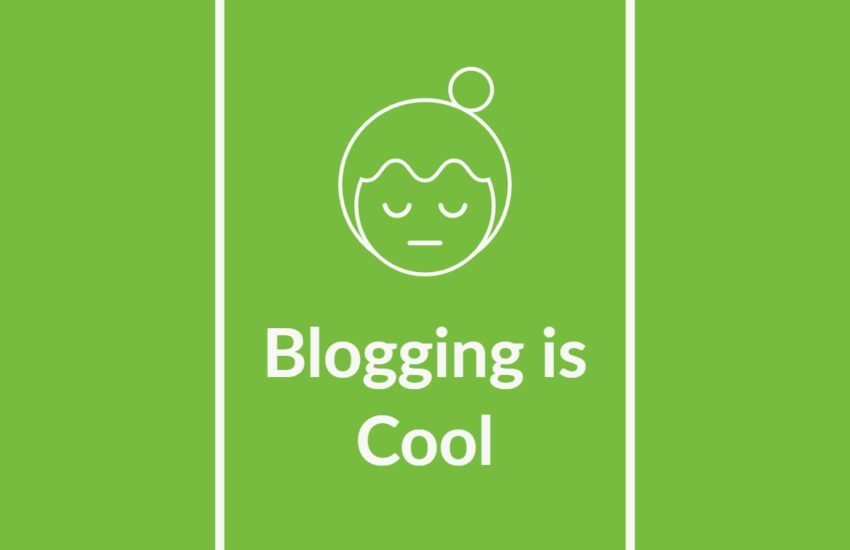The Journey of Blogging: From Simple Diaries to Digital Empires
- How Blogging Started
- Late 1990s
- What is Blogging?
- Early 2000s
- Explosion of Blogging
- Authenticity
- Popularity
- Social Media
- Challenges
- Resurgence
- Blogging Today
- The Rise of Clickbait: Buzzfeed
- Content Marketing Institute: Redefining Business Blogging
- SEO Optimization: Moz and Semrush
- Acquisitions and Niche Blogs
- Defining the “Best” Blog
- Conclusion
How Blogging Started
In the early days of the internet, long before social media platforms dominated our online interactions, there existed a humble form of self-expression known as blogging.
Late 1990s
It all began in the late 1990s when the internet was still in its infancy and personal websites were just starting to emerge. These early bloggers were pioneers, carving out a space for themselves in the digital landscape and paving the way for the vibrant blogging community we know today.
What is Blogging?
At its core, blogging is simply the act of publishing content on a website in reverse-chronological order, with the most recent posts appearing first. It started with individuals writing about their daily lives, hobbies, and interests, much like an online diary. These early blogs were basic and often amateurish, but they represented a new form of self-expression and communication that resonated with people around the world.
Early 2000s
As the internet evolved and technology advanced, so too did blogging. In the early 2000s, platforms like LiveJournal, Blogger, and Xanga made it easier than ever for anyone to start their own blog. These platforms offered simple tools and templates that allowed users to create and customize their own websites without needing any technical expertise. Suddenly, blogging wasn’t just for tech-savvy individuals—it was accessible to anyone with an internet connection and something to say.
Explosion of Blogging
The democratization of blogging led to an explosion of creativity and diversity in the blogosphere. People from all walks of life began sharing their thoughts, experiences, and expertise on a wide range of topics, from cooking and travel to politics and technology. Niche communities formed around specific interests, connecting like-minded individuals from across the globe and fostering vibrant discussions and debates.
Authenticity
One of the defining characteristics of early blogging was its authenticity. Unlike traditional media outlets, which were often driven by corporate interests and editorial agendas, bloggers had the freedom to express themselves openly and honestly. Readers appreciated this transparency and authenticity, forming strong bonds with their favorite bloggers and trusting their recommendations and opinions.
Popularity
As blogging continued to grow in popularity, it began to attract the attention of mainstream media outlets and businesses. Recognizing the influence and reach of popular bloggers, companies started to reach out to them for partnerships and sponsorships. This marked the beginning of the monetization of blogging, as bloggers began to earn money through advertising, sponsored content, and affiliate marketing.
Social Media
The rise of social media platforms like Facebook, Twitter, and Instagram in the late 2000s posed both opportunities and challenges for bloggers. On one hand, social media provided bloggers with new channels to promote their content and reach a wider audience. On the other hand, it also posed a threat to traditional blogging platforms, as many users began to gravitate towards shorter-form, real-time content on social media.
Challenges
Despite these challenges, blogging continued to evolve and adapt to the changing digital landscape. Bloggers experimented with new formats and mediums, incorporating multimedia content like photos, videos, and podcasts into their blogs. They also embraced search engine optimization (SEO) techniques to improve their visibility and attract more readers from search engines like Google.
Resurgence
In recent years, blogging has undergone a resurgence, fueled in part by the rise of influencer culture and the growing demand for authentic, relatable content. While social media platforms may offer instant gratification and fleeting fame, many users are craving deeper connections and more meaningful interactions. Blogging provides a platform for long-form storytelling and in-depth exploration of topics, allowing bloggers to connect with their audience on a deeper level.
Blogging Today
Today, blogging encompasses a wide range of formats and genres, from personal blogs and lifestyle blogs to niche blogs and professional blogs. It’s no longer just a hobby for amateurs—it’s a legitimate career path for those who are willing to put in the time and effort to build their audience and monetize their content. While the landscape may be more competitive than ever, there’s still plenty of room for new voices and perspectives in the world of blogging.
The Rise of Clickbait: Buzzfeed
When it comes to clickbait headlines, Buzzfeed is often credited as the pioneer. This popular website revolutionized the way content is presented, using catchy titles and intriguing thumbnails to attract readers. While the clickbait approach has received its fair share of criticism, there’s no denying the influence Buzzfeed has had on the blogging industry.
Content Marketing Institute: Redefining Business Blogging
Content Marketing Institute (CMI) has played a significant role in shaping the way businesses approach blogging and content creation. With their insightful articles and educational resources, CMI has helped countless marketers understand the importance of providing valuable content to their audience. Their emphasis on storytelling and building relationships through content has transformed the way businesses connect with their customers.
SEO Optimization: Moz and Semrush
When it comes to search engine optimization (SEO), Moz and Semrush have been at the forefront of educating marketers. Both blogs provide valuable insights and strategies for optimizing websites to improve search engine rankings. From keyword research to on-page optimization, these blogs have empowered marketers to enhance their online visibility and drive organic traffic to their websites.
Acquisitions and Niche Blogs
In recent years, we have witnessed the rise of SEO farms acquiring top niche blogs. Companies like Pillar Media and Red Ventures have strategically purchased popular blogs to expand their online presence and reach a wider audience. This trend has allowed niche blogs to thrive and continue providing specialized content to their dedicated readership.
Defining the “Best” Blog
When it comes to determining the best blog of all time, it’s important to consider various factors such as influence, innovation, and longevity. The impact a blog has on its readers, the industry, and the blogging community as a whole plays a crucial role in its recognition as one of the best.
However, it is challenging to pinpoint a single blog as the absolute best, as the blogging landscape is constantly evolving. Different blogs excel in different areas, catering to diverse audiences and providing unique perspectives. What may be the best blog for one person may not resonate with another.
Ultimately, the “best” blog is subjective and depends on individual preferences and needs. Some may value informative and educational content, while others may prioritize entertainment and engagement. The key is to find blogs that align with your interests and provide value in the areas that matter most to you.
Conclusion
The evolution of blogging is a testament to the power of the internet to democratize communication and empower individuals to share their stories with the world. From its humble beginnings as online diaries to its current status as a legitimate form of media and entertainment, blogging has come a long way in a relatively short period of time. And while the digital landscape may continue to change and evolve, one thing is certain: blogging is here to stay.
Over the years, blogging has transformed the way we consume and engage with online content. From clickbait headlines to SEO optimization, numerous blogs have left a lasting impact on the digital landscape. In this article, we will explore some of the most influential blogs of all time and the contributions they have made to the blogging world.
In conclusion, the blogging industry has witnessed significant transformations over the years, thanks to influential blogs like Buzzfeed, Content Marketing Institute, Moz, and Semrush. Each of these blogs has made a lasting impact on the way we consume and create online content. However, the notion of the “best” blog is subjective and varies from person to person. The key is to explore and discover blogs that resonate with your interests and provide the value you seek.


